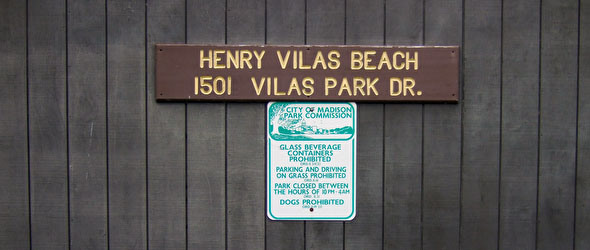FOLW, with partners from the Madison Department of Public Health (MDPH), Madison Information Services, State Laboratory of Hygiene (WSLH), US Geological Survey (USGS), and the University of Wisconsin Extension, are working on a US Environmental Protection Agency Environmental Monitoring for Public Access and Community Tracking (EMPACT) grant-funded comprehensive water quality monitoring program at three Madison beaches. The goal of the study is to develop better and faster ways of identifying unsafe swimming conditions and therefore reduce the risk of swimmers being exposed to pathogens. FOLW’s role is to implement outreach strategies to educate Vilas Beach swimmers and the community about what causes poor water quality and how to help protect our beaches.
The Madison Department of Public Health (MDPH) regularly monitors beach water quality to ensure that beaches are safe for swimming (i.e. pathogen free). Occasionally, beaches have to be closed due to the suspected presence of pathogens. This study, intended to improve the beach monitoring process, includes extensive water quality monitoring at three Madison beaches: Olbrich Beach on Lake Monona, Spring Harbor Beach on Lake Mendota, and Vilas Beach on Lake Wingra. Over a 2-year period, beginning in the summer of 2002, MDPH and partners will be studying beach water quality for physical, nutrient, and weather-related factors. These factors can be measured quickly and frequently using automated sampling instruments.
Water samples are also being collected for a number of bacterial tests using cutting-edge technologies used to determine the presence and source of fecal contamination. Bacterial tests involve complex laboratory procedures and require more time than the above factors measured with automated instruments. This means that beach closings based on bacterial tests may lag behind the window of time when unsafe swimming conditions actually exist. The EMPACT study will develop ways to predict bacterial indicators of unsafe swimming conditions from quickly measured factors (physical, nutrient, and weather-related). Ultimately, this will allow the MDPH to make more immediate assessments of the risk of pathogen presence, close beaches more quickly, and reduce the risk of swimmers being exposed to pathogens.
Read more
- More information on this study and Madison’s beaches

